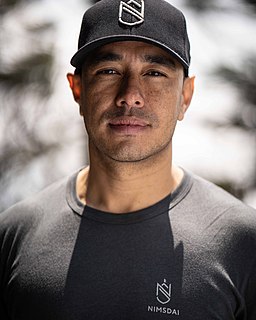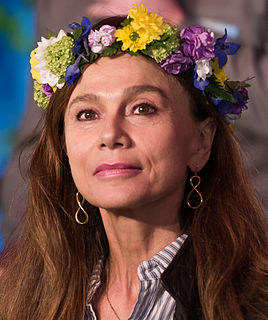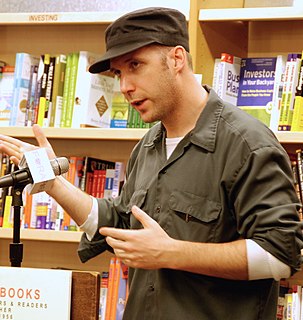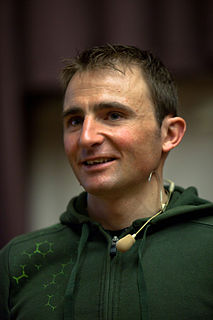A Quote by Bradley Chicho
Highest of heights, I climb this mountain and feel one with the rock and grit and solitude echoing back at me.
Related Quotes
It is because you have the typical American habit of seeing everything as a test. You see the mountain as your enemy and you set out to defeat it. So, naturally, the mountain fights back and it is stronger than you are. We do not see the mountain as our enemy to be conquered. The purpose of our climb is to become one with the mountain and so it lifts us up and carries us along.
The number one metaphor I have in my mind for writing a screenplay is that...you're trying to climb a mountain blindfolded. And the funny thing about that is, you think, 'Okay, that's hard because you're climbing up a rock face, and you don't know where you're going, and you don't know where the top is, you can't see what's below you...' But actually the hardest part about climbing a mountain blindfolded is just finding the mountain.
When seen up close, dangers are controllable: when you begin to climb the mountain of your dreams, pay attention to the surroundings. There are cliffs, of course. There are almost imperceptible cracks in the mountain rock. There are stones so polished by storms that they have become as slippery as ice. But if you know where you are placing each footstep, you will notice the traps and how to get around them.







































